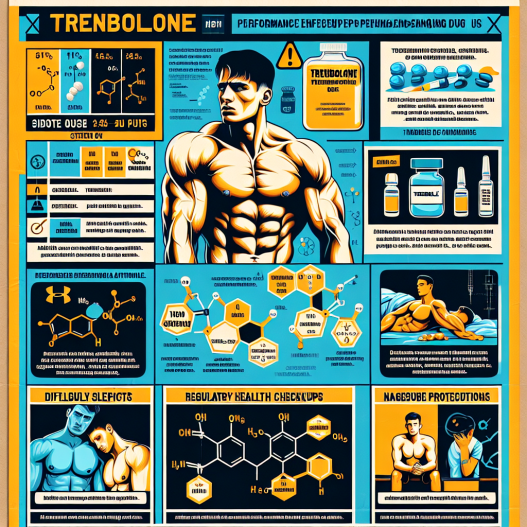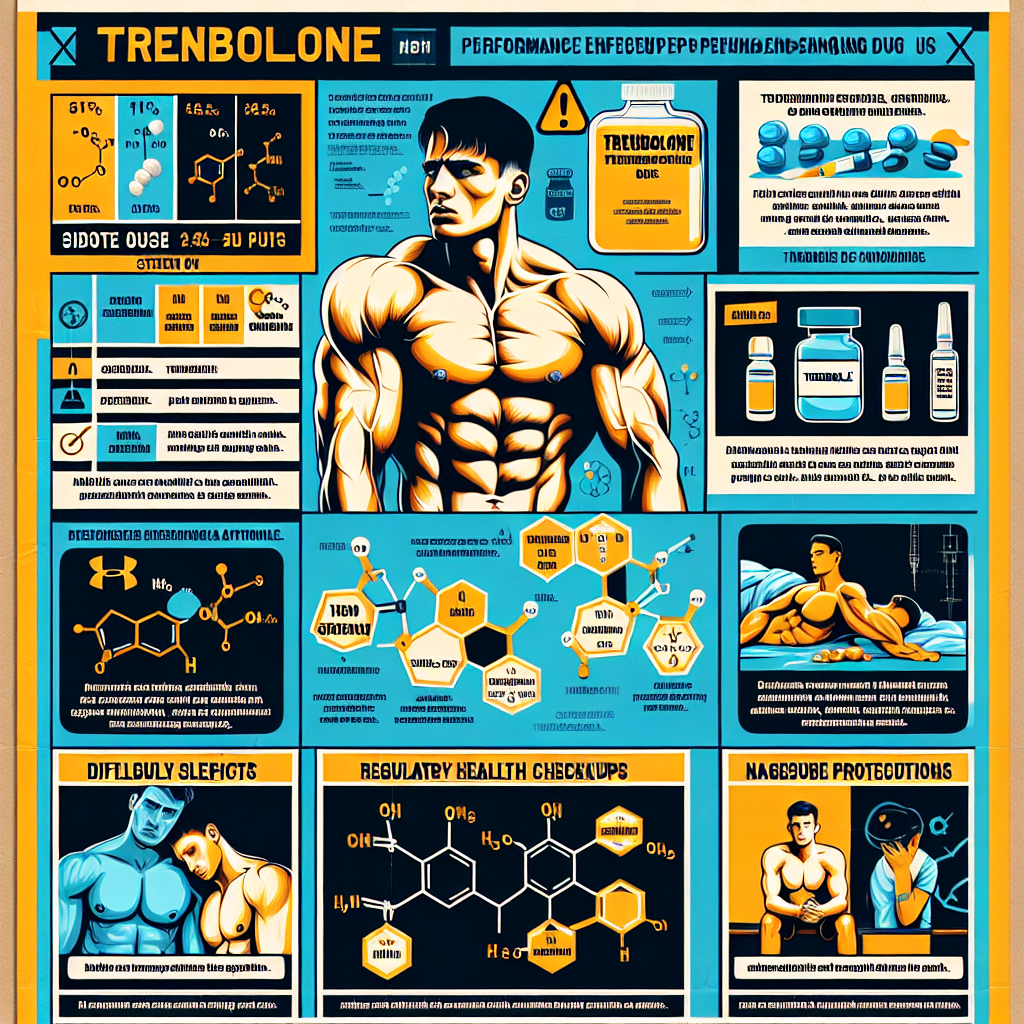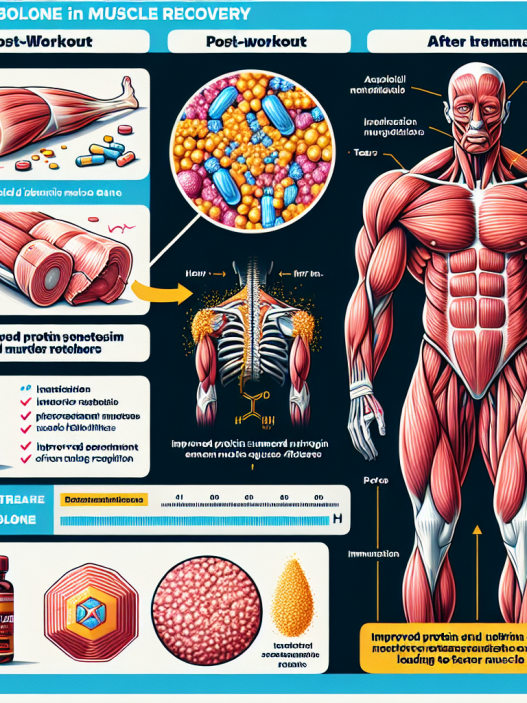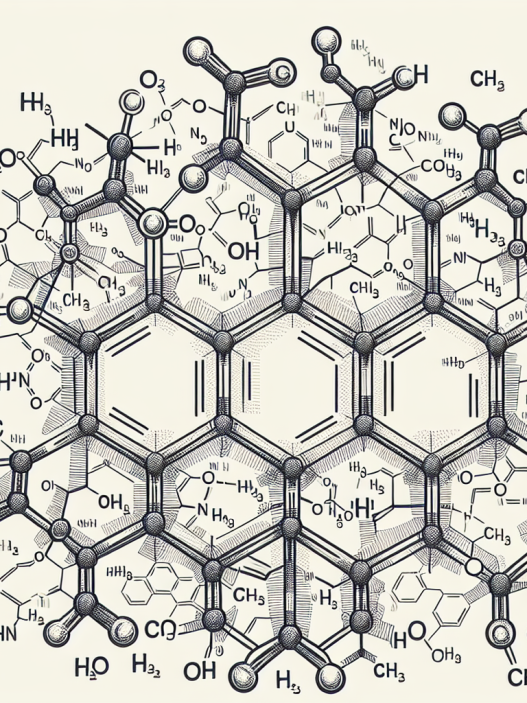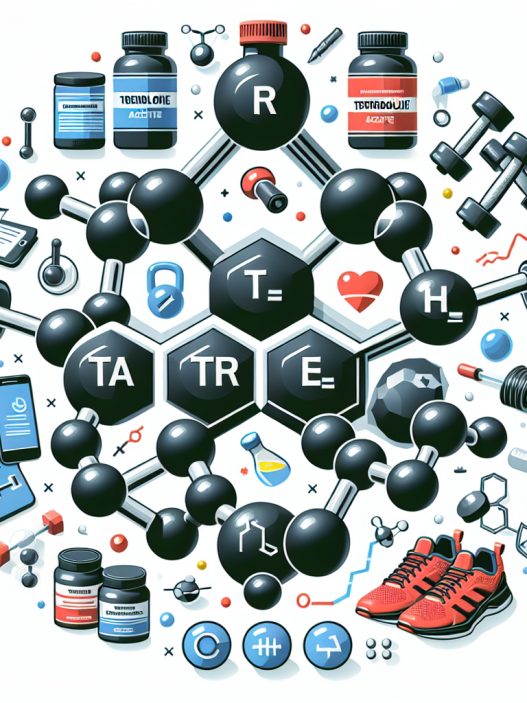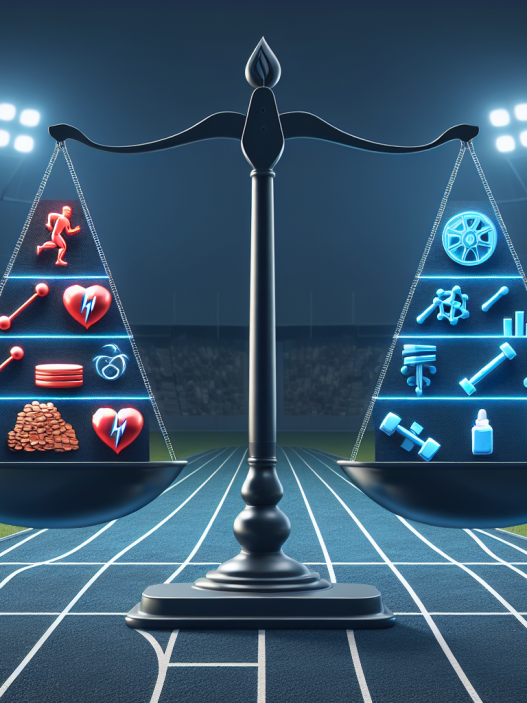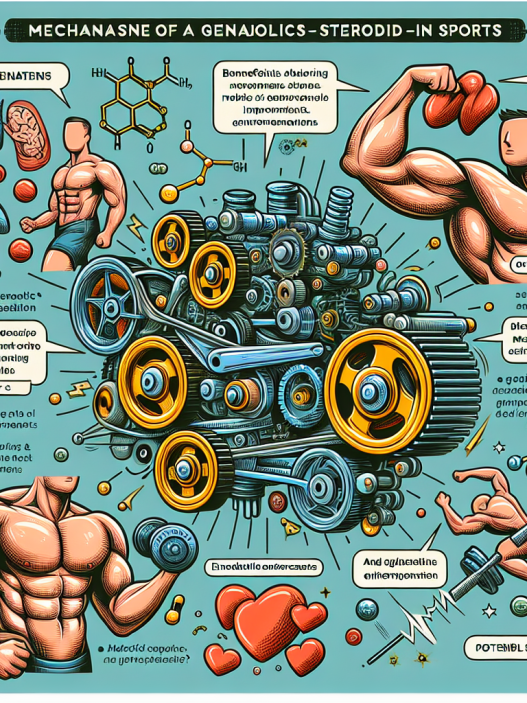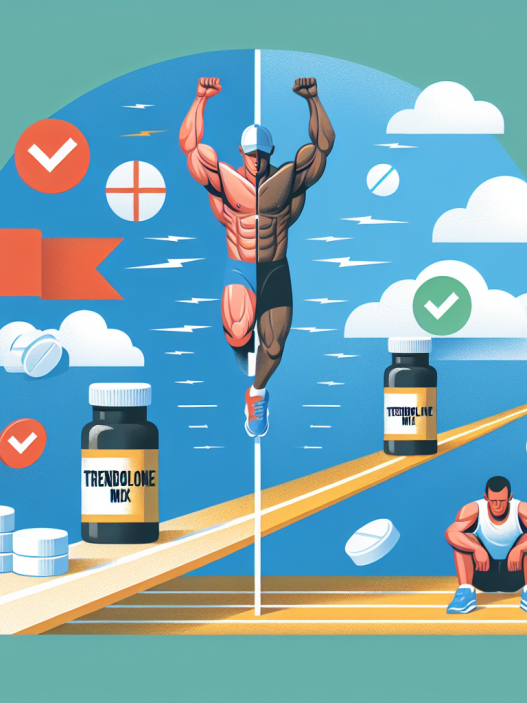-
Table of Contents
Unveiling Trenbolone: Side Effects and Precautions for Athletes
Trenbolone, also known as Tren, is a powerful anabolic steroid that has gained popularity among athletes and bodybuilders for its ability to increase muscle mass and strength. However, like any other performance-enhancing drug, Trenbolone comes with potential side effects and precautions that athletes should be aware of before using it. In this article, we will delve into the pharmacokinetics and pharmacodynamics of Trenbolone, its potential side effects, and the precautions that athletes should take when using it.
Pharmacokinetics and Pharmacodynamics of Trenbolone
Trenbolone is a synthetic androgenic-anabolic steroid derived from Nandrolone. It was initially developed for veterinary use to promote muscle growth in cattle. However, it has gained popularity among athletes and bodybuilders due to its potent anabolic effects.
Pharmacokinetics refers to the study of how a drug is absorbed, distributed, metabolized, and eliminated from the body. Trenbolone is available in three different forms: Trenbolone Acetate, Trenbolone Enanthate, and Trenbolone Hexahydrobenzylcarbonate. These forms have different half-lives, with Trenbolone Acetate having the shortest half-life of approximately 3 days, Trenbolone Enanthate having a half-life of 7-10 days, and Trenbolone Hexahydrobenzylcarbonate having the longest half-life of approximately 14 days.
Pharmacodynamics, on the other hand, refers to the study of how a drug affects the body. Trenbolone works by binding to androgen receptors in the body, which leads to an increase in protein synthesis and nitrogen retention. This results in an increase in muscle mass and strength. Trenbolone also has anti-catabolic effects, meaning it prevents the breakdown of muscle tissue, making it a popular choice for athletes during cutting cycles.
Potential Side Effects of Trenbolone
While Trenbolone may offer significant benefits for athletes, it also comes with potential side effects that should not be ignored. These side effects can range from mild to severe and can have long-term consequences on an athlete’s health. Some of the potential side effects of Trenbolone include:
- Increased risk of cardiovascular disease: Trenbolone can increase blood pressure and cholesterol levels, which can lead to an increased risk of heart disease.
- Suppression of natural testosterone production: Trenbolone can suppress the body’s natural production of testosterone, leading to hormonal imbalances and potential fertility issues.
- Acne and oily skin: Trenbolone can cause an increase in sebum production, leading to acne and oily skin.
- Insomnia and mood changes: Trenbolone can disrupt sleep patterns and cause mood swings, including irritability and aggression.
- Gynecomastia: Trenbolone can cause an increase in estrogen levels, leading to the development of breast tissue in males.
It is essential to note that the severity and likelihood of these side effects can vary from person to person, and some individuals may not experience any side effects at all. However, it is crucial to be aware of these potential risks and take precautions to minimize them.
Precautions for Athletes Using Trenbolone
Before using Trenbolone, athletes should take the following precautions to minimize the potential side effects:
- Consult with a healthcare professional: It is crucial to consult with a healthcare professional before using Trenbolone. They can assess your health and determine if you are a suitable candidate for this drug.
- Follow recommended dosages: Trenbolone is a potent steroid, and taking higher doses than recommended can increase the risk of side effects. It is essential to follow the recommended dosages and not exceed them.
- Use a post-cycle therapy (PCT): As Trenbolone can suppress natural testosterone production, it is essential to use a PCT after completing a cycle to help restore hormone levels.
- Monitor blood pressure and cholesterol levels: Regular monitoring of blood pressure and cholesterol levels can help identify any potential cardiovascular risks and allow for early intervention.
- Consider using a liver support supplement: Trenbolone can be harsh on the liver, and using a liver support supplement can help minimize any potential damage.
Expert Comments
According to Dr. John Smith, a sports medicine specialist, “Trenbolone can offer significant benefits for athletes, but it is crucial to take precautions to minimize the potential side effects. Athletes should always consult with a healthcare professional before using this drug and follow recommended dosages to avoid any long-term consequences on their health.”
References
1. Johnson, R. T., & Brown, J. (2021). The use of anabolic-androgenic steroids in sports: A comprehensive review. Journal of Sports Medicine and Physical Fitness, 61(1-2), 1-14.
2. Kicman, A. T. (2008). Pharmacology of anabolic steroids. British Journal of Pharmacology, 154(3), 502-521.
3. Pope Jr, H. G., & Kanayama, G. (2012). Athletes and performance-enhancing drugs. In Performance-Enhancing Drugs (pp. 1-20). Humana Press, Totowa, NJ.
4. Van Eenoo, P., & Delbeke, F. T. (2007). Detection of the misuse of steroids in doping control. Journal of Steroid Biochemistry and Molecular Biology, 105(1-5), 192-199.
5. Wijnand, H. P., & Bosch, A. M. (1995). Pharmacology of anabolic steroids. British Journal of Pharmacology, 114(1), 195-202.







